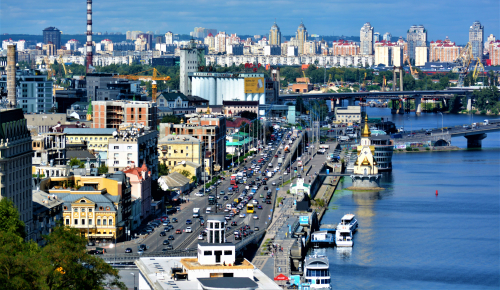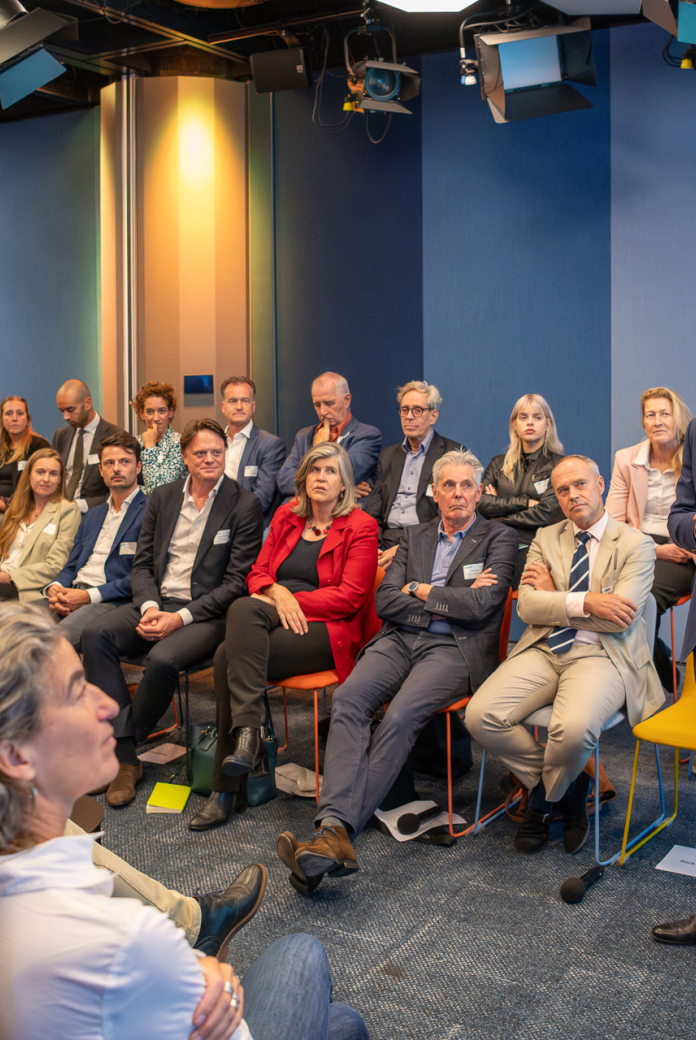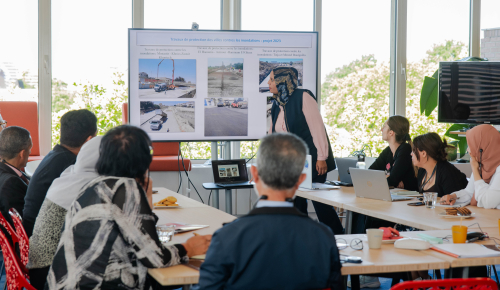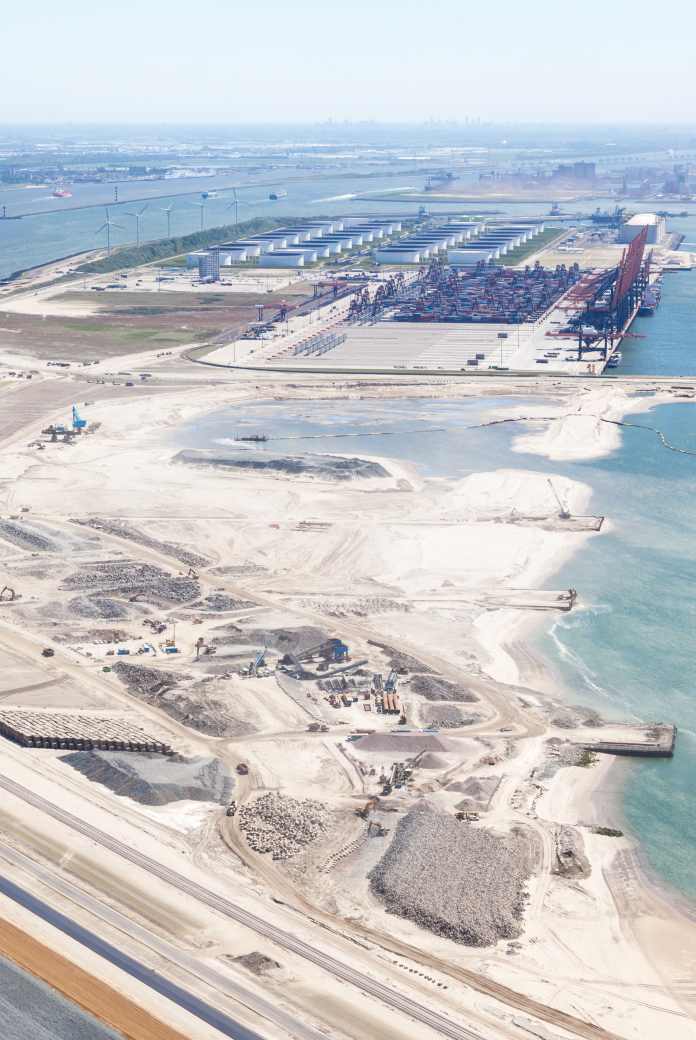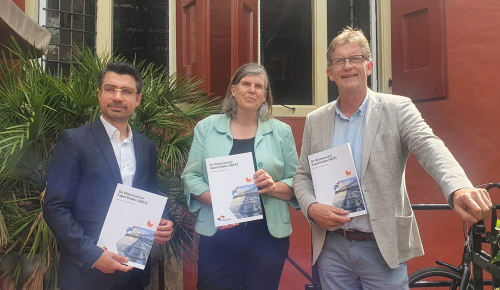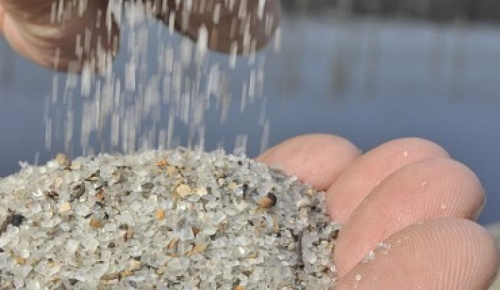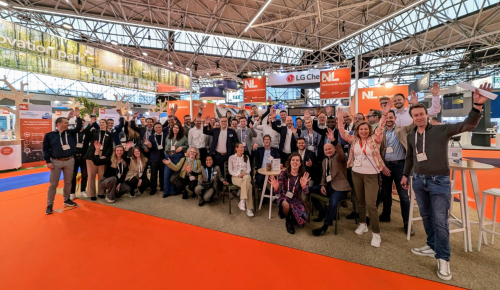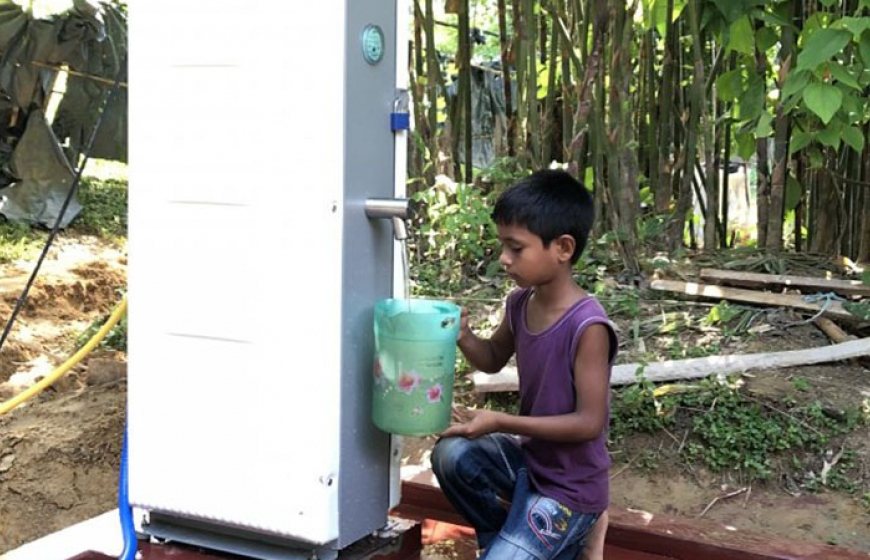
Two solar-powered water purification devices have been installed near the Bangladeshi refugee camp Kutupalong as emergency aid and with the aim of establishing a sustainable cooperation. The Dutch company Villagepump supplied these devices, and its COO, Joost de Waard, addresses in this blog why the Dutch water sector should take this approach.
‘Contrary to what you might think, these water purification devices are not for the refugees – they are for the forgotten group of residents in the vicinity of the Kutupalong Refugee Camp. With over 750,000 people living in this camp, the water quality for the original population is being put at risk. Our project has been made possible partly by a grant from the Ministry of Foreign Affairs via RVO.nl, and it alleviates this risk substantially. One pump yields at least 500 litres of fully purified drinking water – to WHO quality standards – per hour, and with two pumps running for drinking purposes only, we assist 4,000 people in two villages.
Push the button
We have always focused on hand-powered water purification systems and they are still our most important products. In addition, we make an electric version to meet the market’s demand; people prefer to press a button instead of cranking. But honestly, I don't think this is always a wise choice because rural areas experience regular hiccups that disrupt the power supply. On the other hand, the electric version has advantages – it offers more options for controlling the purification and can purify dirtier water.
The next step is to get the electric purification systems running on energy from solar panels. We introduced this version last year, and one is now running in Bangladesh. We placed solar panels on a roof and put the batteries out of sight because they are susceptible to theft. This is not the case for manually operated devices, although I know of a case of vandalism and a floater of a pump that was once attacked by a crocodile. It apparently thought the floater was a threat or something edible.
Positive first results
The first reports from Bangladesh are very positive. In a few months, we will invite emergency aid organisations to come and see how the device works. After the demonstration period, we will transfer the pumps to BRAC, a large Bengali NGO we collaborate with. They manage and monitor the pumps together with a selected group from the villages.
We hope we can install our products in more places in Bangladesh, but it takes time and effort to build a solid relationship with aid organisations. Organisations such as UNICEF and the Red Cross are generally not early adopters and require a large installed base for applying solutions. Consequently, enormous amounts of bottled water are still being supplied as emergency aid. Off-grid water purification systems like ours are on balance cheaper, you earn the investment back in two years in relation to shipping in tank water, and they are certainly more sustainable.
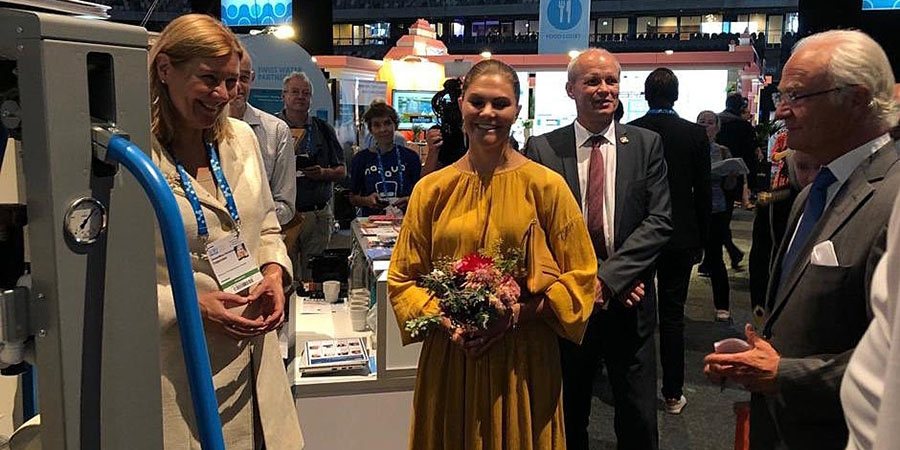
NWP membership benefit
The main benefit we get from our NWP membership is that it allows us to participate in international trade exhibitions and conferences under the umbrella of the striking Holland Pavilion. Last August, we participated in the SIWI World Water Week in Stockholm, and even the King of Sweden visited our stand! For us, the pavilion was the ideal place to show our products because people really have to see our device live – you won't get its potential from a flashy website. We are convinced the Holland Pavilion offers the perfect platform and the perfect support.
Take action together
I have also been to NWP country platform meetings, but I would especially appreciate it if, supported by NWP, we could take action together as unified Dutch water sector. Nothing is as predictable as a natural disaster, and certainly a monsoon, which directly leads to a lack of safe drinking water. I think the Dutch water sector must be ready for decisive and coordinated action so that we can go where needed immediately, show that our products work, and that we are there to stay. That is how we work in Bangladesh with BRAC; they not only provide emergency assistance, but they build a lasting relationship. We do prefer this approach and want to take it more often.’
